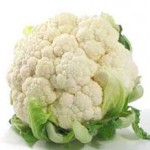 It seems like there’s a new study just about every day that talks about the almost magical healing properties of whatever food is trendy. Here are a few food items that may still be a little bit under the radar. As with anything having to do with your health, be sure to speak with your medical provider before you make any changes to your diet based on something you read here or anywhere else.
It seems like there’s a new study just about every day that talks about the almost magical healing properties of whatever food is trendy. Here are a few food items that may still be a little bit under the radar. As with anything having to do with your health, be sure to speak with your medical provider before you make any changes to your diet based on something you read here or anywhere else.
Cauliflower.
- Not the most glamorous of veggies—in fact, it pales in comparison to its more colorful cousins broccoli, cabbage, and Brussels sprouts. But as an antioxidant, cauliflower may protect our cells and possibly help prevent cancer. As an anti-inflammatory, it may stave off arthritis heart disease, diabetes, and other diseases. As a fiber source, it may help with digestion. And as a source of vitamins and minerals, it may help protect our muscles and bones.
Grapes.
- For men with metabolic syndrome (a collection of factors that are associated with higher risk of heart disease and diabetes), taking powdered grapes may strengthen blood vessel walls and reduce blood pressure. That, in turn, reduces heart attack risk.
Resveratrol.
- A recent clinical trial called “Resveratrol for Improved Performance in Elders” (RIPE) found that adults 60 and older who take 1000 mg of resveratrol per day for 90 days increase blood flow to the brain, brain processing speed, and memory. Resveratraol is a naturally occurring chemical compound that is found in the skins of red grapes, tomatoes, and some other red or purple foods.
Breast milk.
- Sorry, you need to be a baby for this one. But if you have a baby around or are likely to anytime soon, pay attention. Researcher Lisa G. Smithers at the University of Adelaide in Australia found that “children who were breastfed at six months and had a healthy diet regularly including foods such as legumes, cheese, fruit and vegetables at 15 and 24 months, had an IQ up to two points higher by age eight… Those children who had a diet regularly involving biscuits, chocolate, sweets, soft drinks and chips in the first two years of life had IQs up to two points lower by age eight.”



